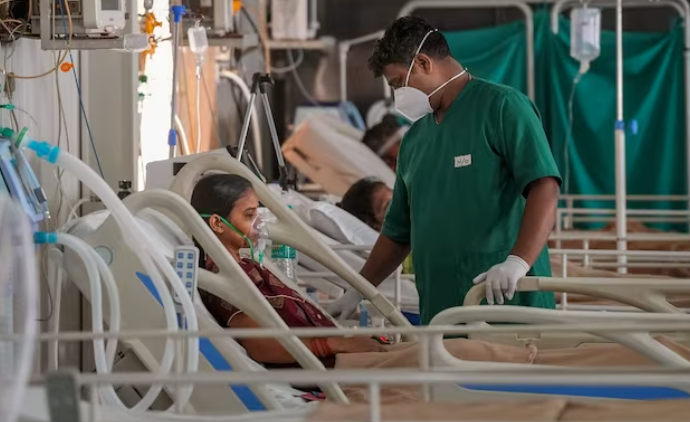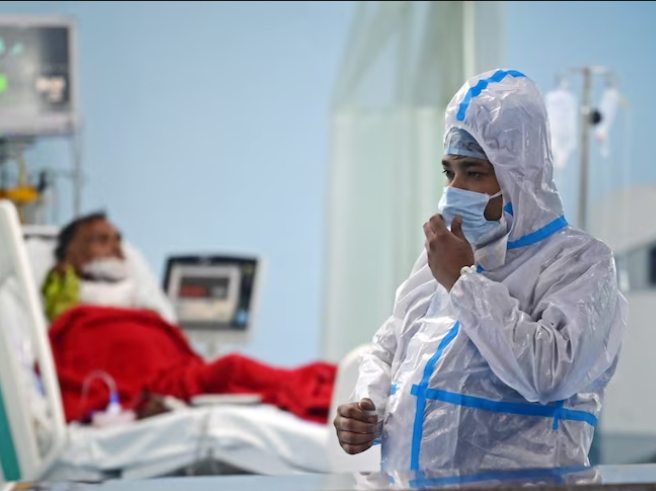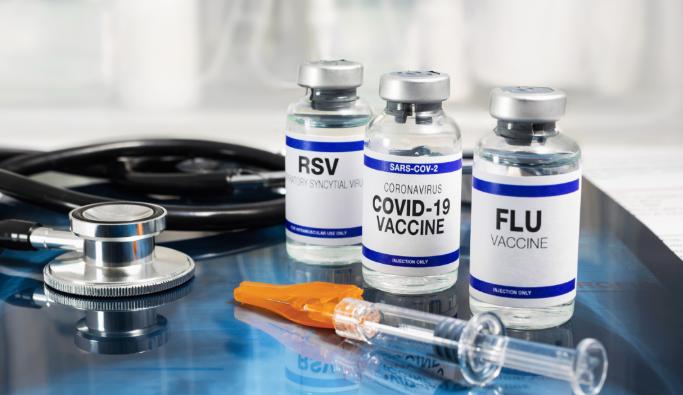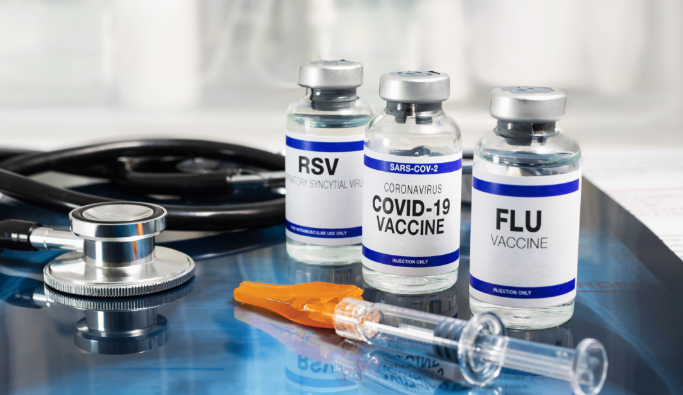Hospitalizations for the flu and RSV are rising not only because of the cold but also because of the high level of air pollution.
As the holiday season approaches, health experts raise alarms about the simultaneous spread of respiratory illnesses, including the JN.1 strain of coronavirus, respiratory syncytial virus (RSV), and influenza.
It’s critical to take preventative measures to safeguard yourself in light of the current viral outbreaks. Hospitalizations for the flu and RSV are rising not only because of the cold but also because of the high level of air pollution.
Also read-Pneumonia : A Patient’s Guide To Pneumonia And Its Symptoms

A new coronavirus variant, JN.1, was detected. How worried should you be?
A new coronavirus sub-variant, JN.1, has been detected in Kerala. The Union Health Minister of Kerala alarmed health facilities and hospitals about preparedness, especially after it was detected in a 79-year-old woman from Kerala.

Vaccination
Vaccination remains a cornerstone of prevention. Wearing high-quality masks or respirators, such as N95s, can provide additional protection, especially for those at high risk of severe illness from COVID-19. “People should wear N95 when moving in a crowded place, hospitals, or outdoors. N95 will protect against the harmful effects of pollution as well as respiratory viral infections,” said Dr. Akshay Budhraja.

Precaution
Hand hygiene is yet another important precaution. Hand washing with soap and water for at least 20 seconds on a regular basis can drastically lower your risk of infection. Improving airflow and ventilation in indoor spaces can also help reduce the concentration of airborne viruses. Options include opening windows, using air purifiers, and turning on exhaust fans.

“Drink plenty of fluids, sleep for at least 7 to 8 hours a day, eat healthy food, avoid crowded places, exercise regularly, keep indoor air quality as clean as possible, and get the annual flu shot and COVID-19 booster dose. Stay updated with the latest guidelines for keeping yourself safe. And the most important thing, do not panic about fake forwards on social media regarding COVID,” suggested Dr. Budhraja. If you develop symptoms of any respiratory illness, it’s important to stay home, get tested, and seek treatment promptly.

Frequently asked questions
How can I prevent COVID and influenza?
Make sure you cough or sneeze into your elbow or a tissue, discard the tissue, and wash your hands right away. Steer clear of individuals who are confirmed or suspected of having the flu, COVID-19, or RSV, especially in crowded indoor areas. You might want to think about donning a mask.
What is the treatment for Corona flu?
The majority of adults with mild cases of COVID-19 can treat their symptoms similarly to how they would treat a seasonal flu: stay home and rest, take ibuprofen or paracetamol for fever and pain relief, stay hydrated, and use cough medicine if necessary. One of the most prevalent COVID-19 symptoms is fatigue.
What are the symptoms of the flu (RSV) and COVID-19?
Fever, coughing, and shortness of breath are common symptoms of COVID-19, respiratory syncytial virus (RSV), and influenza (flu). It can be challenging to differentiate between respiratory virus-related illnesses due to their similar symptoms.
Can you have a cold and COVID at the same time?
Respiratory viruses can sometimes infect you in pairs, so COVID-19 can also accompany a cold or the flu. It is known as “coinfection,” but as far as current scientific understanding allows, it is an uncommon occurrence.
What antiviral is used for the flu?
There are four FDA-approved influenza antiviral drugs recommended by the CDC for use against recently circulating influenza viruses.
- Rapivab (peramivir)
- Relenza (zanamivir)
- Tamiflu (oseltamivir phosphate, also available as generic)
- Xofluza (baloxavir marboxil)
Also read-Emphysema : A Patient’s Guide To Emphysema And Its Symptoms
images source: Google
Disclaimer: The opinions and suggestions expressed in this article are solely those of the individual analysts. These are not the opinions of HNN. For more, please consult with your doctor




































